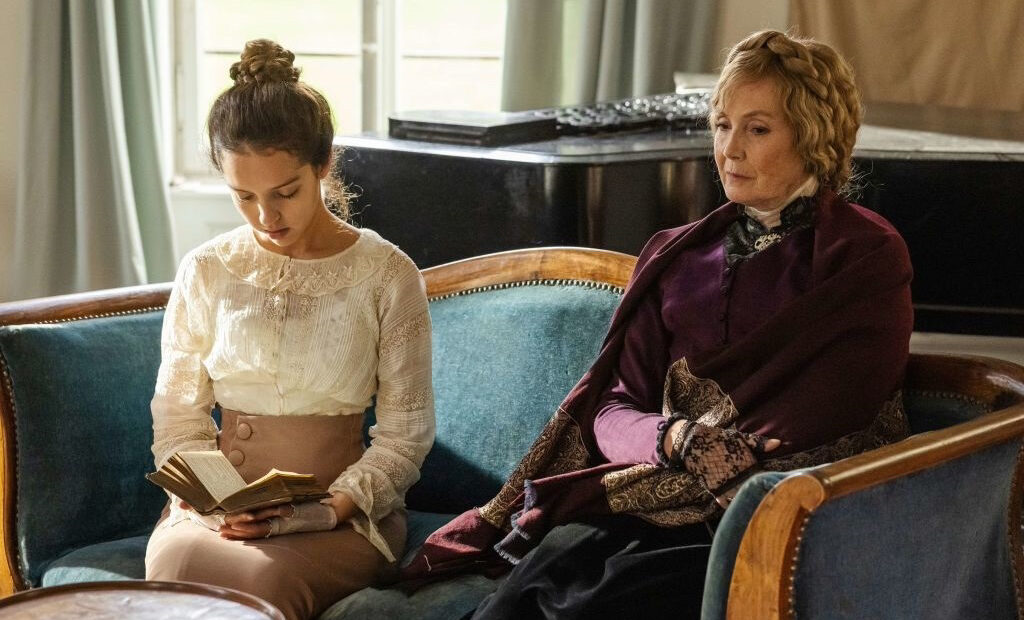Gerda

Gerda is a diverting, if frustrating, account of thwarted personal choice in modern Russia, speckled with striking compositions, a crimson palette and grand thematic gestures. Lap dancing offers paid employment and the potential for erotic agency for a student called Lera (Anastasiya Krasovskaya) – but it also comes with the spectre of objectification and violence. For a piece influenced by Russia’s cinematic lineage, this work is founded on fabular, conceptual and metaphysical underpinnings. Gerda, Lera’s late-night neon alias, shares a character name from Hans Christian Andersen’s fairytale, The Snow Queen. In this vein, the film suggests how fantasy entwines with the realities of the present.
Director Natalya Kudryashova provides an abstracted perspective of the thin line between dancer and sex worker. Although this does not translate into a reserved observation of the naked form, the visual emphasis on the female body is admiring rather than exploitative (DP Vasiliy Grigolyunas). The screenplay interrogates the protagonist’s moral dilemmas through repetitive dialogue scenes: the girls at the club alternately berate and confide in her; she consistently finds her otherwise absent father drunk on the couch; she must regularly comfort her ailing mother. Modulating rituals and echoing events can produce satisfying filmic results but here the technique functions to be mostly vague and prohibitive. Po-faced dream sequences sit uneasily next to Lera’s irony-laden interviews of household tenants, conducted for the benefit of her college course.
The most narrative progression is found in the dancer’s apparently platonic relationship with her boyfriend, Oleg (rising star Yura Borisov), an artist by day and gravedigger by night. The portrayal of their bond supplies the audience with the most convincing and delicate aspects of the drama. Oleg swings between tenderness and impotence, which brings into relief the many conflicts of the protagonist. Other scenes lend themselves to intentional bathos, exemplified when Lera rescues her co-worker from a hotel room of leering grotesques, a gargoyle band of male professionals hoping to molest what is, to their mind, a catatonic object. For distraction, she stands on the bed and sings a folk song. The camera pans to bemused expressions, a collective shrivelling in the wake of a young woman’s spirit and autonomy. It provides a fine illustration of the ubiquitous sexual imbalance, righted only for a moment.
Joseph Owen
Gerda does not have a UK release date yet.
Read more reviews from our Locarno Film Festival 2021 coverage here.
For further information about the event visit the Locarno Film Festival website here.
























Facebook
Twitter
Instagram
YouTube
RSS